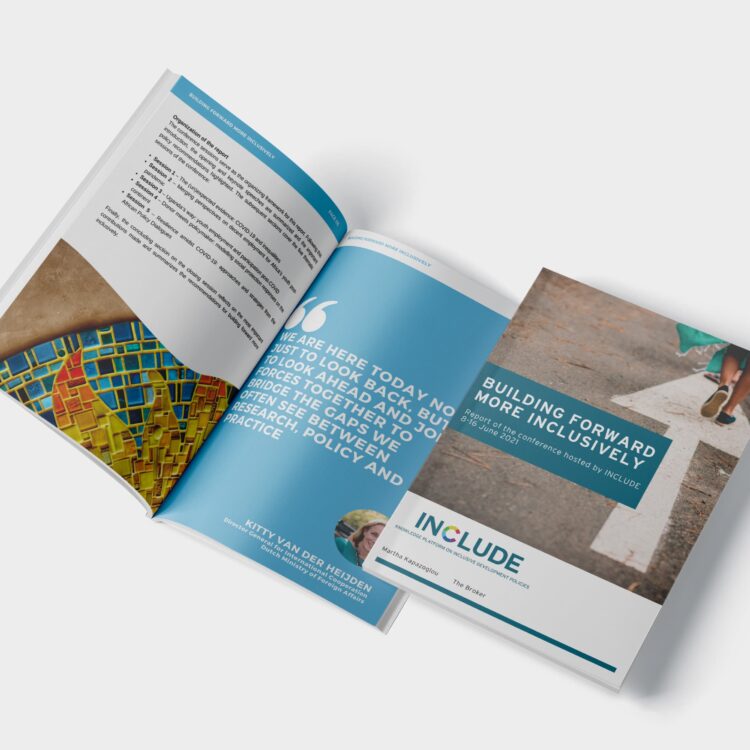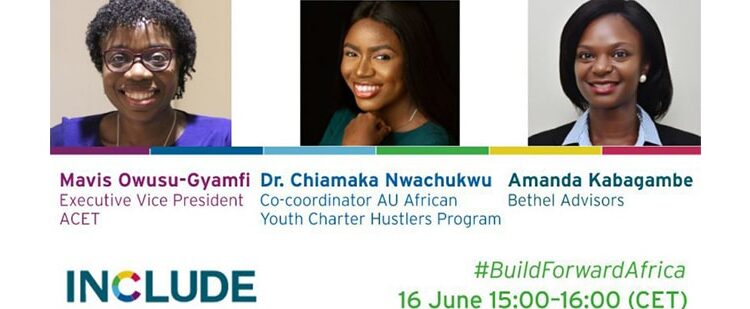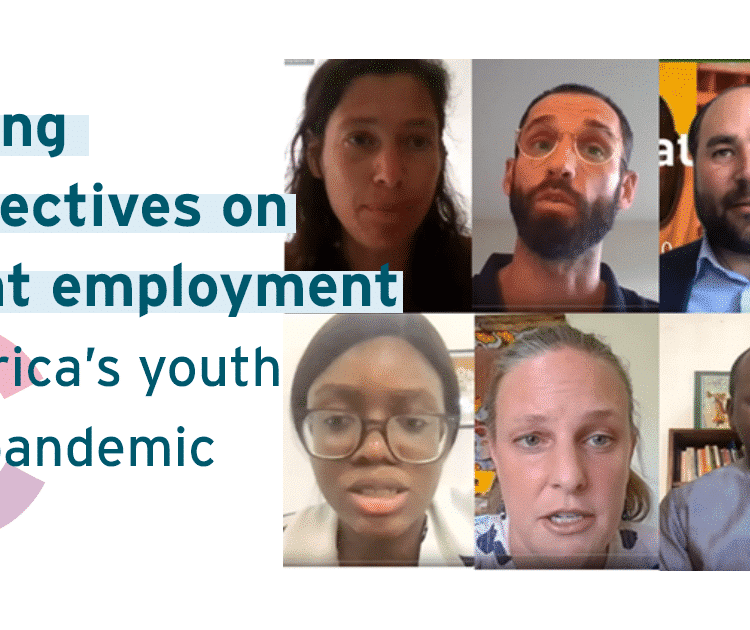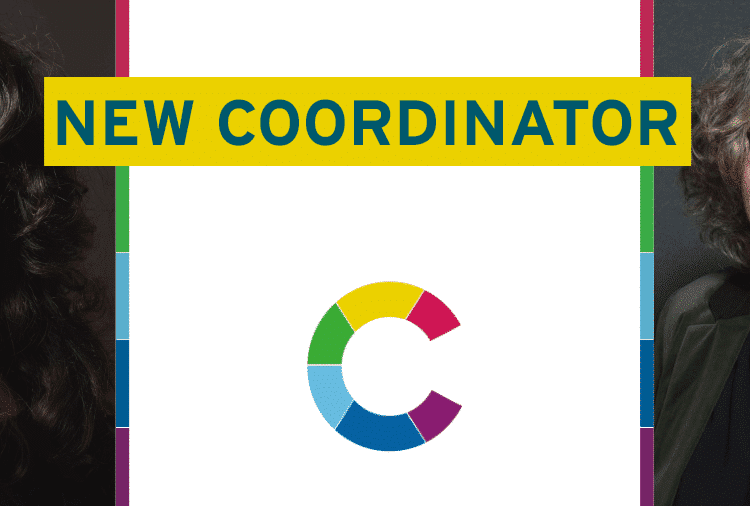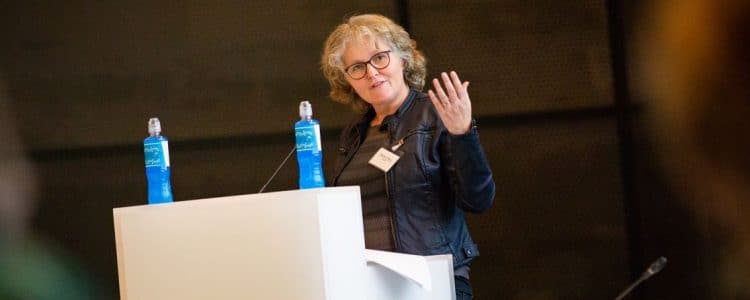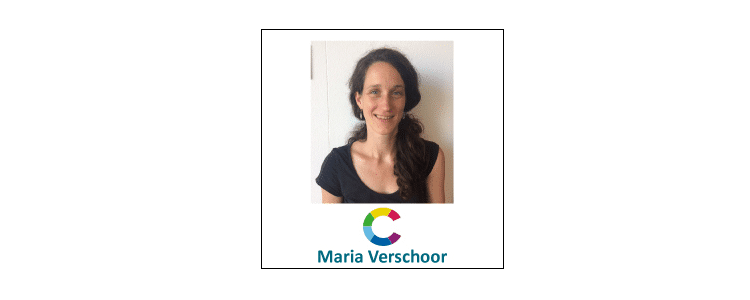
Maria Verschoor, policy officer at NWO-WOTRO Science for Global Development, has experienced first-hand how research consortia are engaged in disseminating knowledge through the INCLUDE knowledge platform. Maria is the day-to-day coordinator of NWO-WOTRO’s programme “Research for Inclusive Development in Sub-Sahara Africa”(RIDSSA). Seventeen research projects have been financed through this programme, which fall under the umbrella of the three themes within INCLUDE’s research agenda. This is, therefore, another very different job description for someone working with INCLUDE. We asked Maria how she views the platform after working with INCLUDE for over the past 4 years?
Maria showed that she was well prepared for our conversation by her response to the first question ‘What is INCLUDE?’ – “Wait, I wrote a couple of keywords down for this”. What stood out in Maria’s formulation of INCLUDE were the strategic collaborations that INCLUDE engages in and the convening power of different actors, which she has witnessed first-hand working for NWO-WOTRO:
“Things like organizing a conference on productive employment with the Netherlands Ministry of Foreign Affairs to discuss research findings, and the collaboration with the African Development Bank – this is not something that is easily accomplished.”
As a result of these targeted collaborations, Maria has observed an increasing enabling environment for uptake of the knowledge from research projects, which work on the ‘productive employment’, ‘social protection’ and ‘strategic actors’ themes. In addition to the RIDSSA research consortia and being able to successfully disseminate knowledge to their direct stakeholders, the involvement of INCLUDE has enabled the sharing of this knowledge to a broader policy audience. This, according to Maria, also means an increased interest and awareness of this broader audience for research, and for policy and evidence-based policy making:
“By linking research findings to themes and questions which were relevant to policymakers in both Africa and The Netherlands, INCLUDE has been able to raise the interests of these policymakers into research, and thereby enabling even more so using the research evidence as a base for policy making.”
Maria explains that there is a large role for INCLUDE in this widening circle of stakeholders with whom the research findings are shared. The need for this knowledge brokering function by INCLUDE, Maria states, is apparent in the case of researchers:
“I observe that there is often limited time for research consortia to be aware about – and participate in – broader debates on inclusive development at a policy level. To be able to determine how research can contribute to the current debates, a knowledge brokering platform like INCLUDE is helpful.”
It is a difficult task to find a common denominator while working on the three themes within the inclusive development field that encompass a wide range of research findings. Maria explains how she sees this as an added value of the platform:
“I find it impressive that INCLUDE is able to find this common denominator within the research projects. The projects are quite diverse, and hence a very diverse pool of knowledge and results are generated. INCLUDE manages to link the knowledge and to present it in an encompassing way.”
What it all comes down to though, is a reform of the debates that are being held. From a traditional debate structure – where the researcher presents his findings to the policymakers – the roles have shifted:
“We have learnt how to design discussions differently, by putting the policy question central and regarding the researcher as the expert. This way, the expert can be consulted based on the existing policy gap, hence in a more targeted and fitting way.”
Finally, Maria was keen to share what she thinks is the remaining potential for the platform. Her answer ended up being in line with an aspiration more people from INCLUDE have expressed: the possibility for direct interaction and debate between researcher and policymaker:
“It would be great if well-renowned researchers could engage in debate directly with policymakers that are working on a specific topic. I would be happy to see an exchange as such take place, and this to be observed or open source for the Ministry of Foreign Affairs and other stakeholders, to show what researchers can add to policy making and the ongoing debate on inclusive development.”
